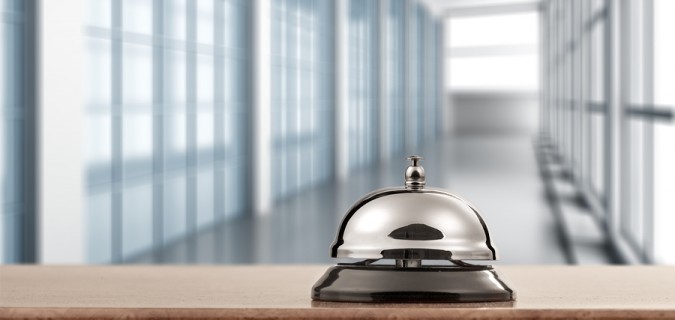McDonald’s is facing a crisis. Despite all of its efforts to accelerate drive-thru times (handing out 60-second hourglasses at the payment window, adding parking spots to reduce bottlenecking and trimming the drive-thru menu to minimize waffling) profits continue to suffer.
Quick service is an American obsession, but McDonald’s may be missing the point. Fast isn’t enough to keep up with a new generation of consumers hungry for customizable, on-demand service. To succeed in the digital era, you must revert back to the age-old standards of good hospitality and proactive service.
Remedy Digital Expectations With Hospitality
In the award-winning film “The Grand Budapest Hotel,” Ralph Fiennes, who plays a hotel concierge, tells his young protégé that a lobby boy “remembers what people hate” and “anticipates the client’s needs before the needs are needed.”
The idea of hospitality isn’t new. In fact, it’s the driving idea behind omotenashi, a Japanese mindset that aims to anticipate guests’ needs and fulfill them without expecting anything in return. However, in the race for consumer attention, many companies have lost touch with some of these fundamental practices.
In our increasingly digital world, consumers gravitate toward service experiences that understand and respect their individuality, needs and preferences. Companies can’t meet these standards by simply dabbling in big data or propelling customers through the drive-thru at warp speed. Genuine hospitality and the magic of anticipatory service will ultimately win the day.
Here are a four ways to thrill digital natives with the tenets of hospitality:
Don’t Fulfill Customer Needs — Create Them
Once-common inconveniences like waiting on hold or being asked to repeat personal information are unacceptable to the general market, especially digital natives. Instead, you must provide a service that is proactive, thoughtful and intuitive.
Although Uber isn’t exactly The Ritz-Carlton, it’s grown into a $41 billion service company by anticipating customers’ needs. The very idea of an on-demand private car service is anticipatory, but Uber takes it one step further by offering users the option to get a fare quote before they book and even split fares with friends via their smartphones.
Many businesses succeed by offering customers something they didn’t even realize they needed. For instance, my company handles all types of business meetings, and we noticed that most people don’t sit down to eat at corporate functions — they stand around eating in groups. When we designed our culinary menu, we chose foods that could be eaten with one hand so people didn’t have to sit down and cut it with a knife. It’s one small detail, but it makes a big difference in clients’ comfort.
Surprise and Delight Customers With an Unforgettable Experience
Your company has to shift from a transactional mindset to a mentality of investing in customer happiness. After all, you can’t win lifelong loyalty and positive word-of-mouth by simply meeting customers’ needs — you must exceed them.
Wells Fargo executed the “surprise and delight” principle flawlessly by wishing customers a happy anniversary at its ATMs, and JetBlue has tried to offset the unpleasant experience of a red-eye flight by offering a complimentary “Snooze Kit” that includes an eye mask and earplugs. Prior to landing, flight attendants are ready with hot towels, coffee and orange juice to reinvigorate groggy passengers.
Empower Customers Through Personalization
Like the experience at traditional Japanese inns, where the okami, or “manageress,” supervises every detail for guests to ensure their individual needs are met, digital natives want services that are fully customizable, seamless, pleasant and practically psychic.
Chipotle Mexican Grill and Starbucks have popularized this approach to service by creating an engaging, purpose-driven dining experience. Rather than selling composed meals or drinks made out of sight, they empower customers to assemble their own creations. If you want a half-chicken, half-steak burrito or two pumps of vanilla in your half-caf sugar-free soy latte, they’ll grant your request and even write your name on your cup and smile when they hand it to you.
Deliver Genuine Service at Every Touchpoint
What’s the hardest part of fulfilling an obnoxious Starbucks order? Getting people to smile while doing so. Great service companies understand how to build a culture that embodies these principles.
Qdoba Mexican Grill takes an almost identical approach to burrito assembly, but it lacks Chipotle’s integrity, personality and purpose. Chipotle takes care of its own people who, in turn, look after their guests. Plus, by incorporating quality ingredients, such as organic, ethically-raised meats, Chipotle has placed its customer values at the forefront of its image.
It takes more than fast service to thrill customers. If that were all it took, McDonald’s global sales wouldn’t be plummeting, and Chipotle would still be that unpronounceable Denver-based burrito joint. Consumers want speed and convenience, but they also want to feel taken care of — whether that comes in the form of a hot towel, extra whipped cream, or three kinds of salsa in their customized burrito.













